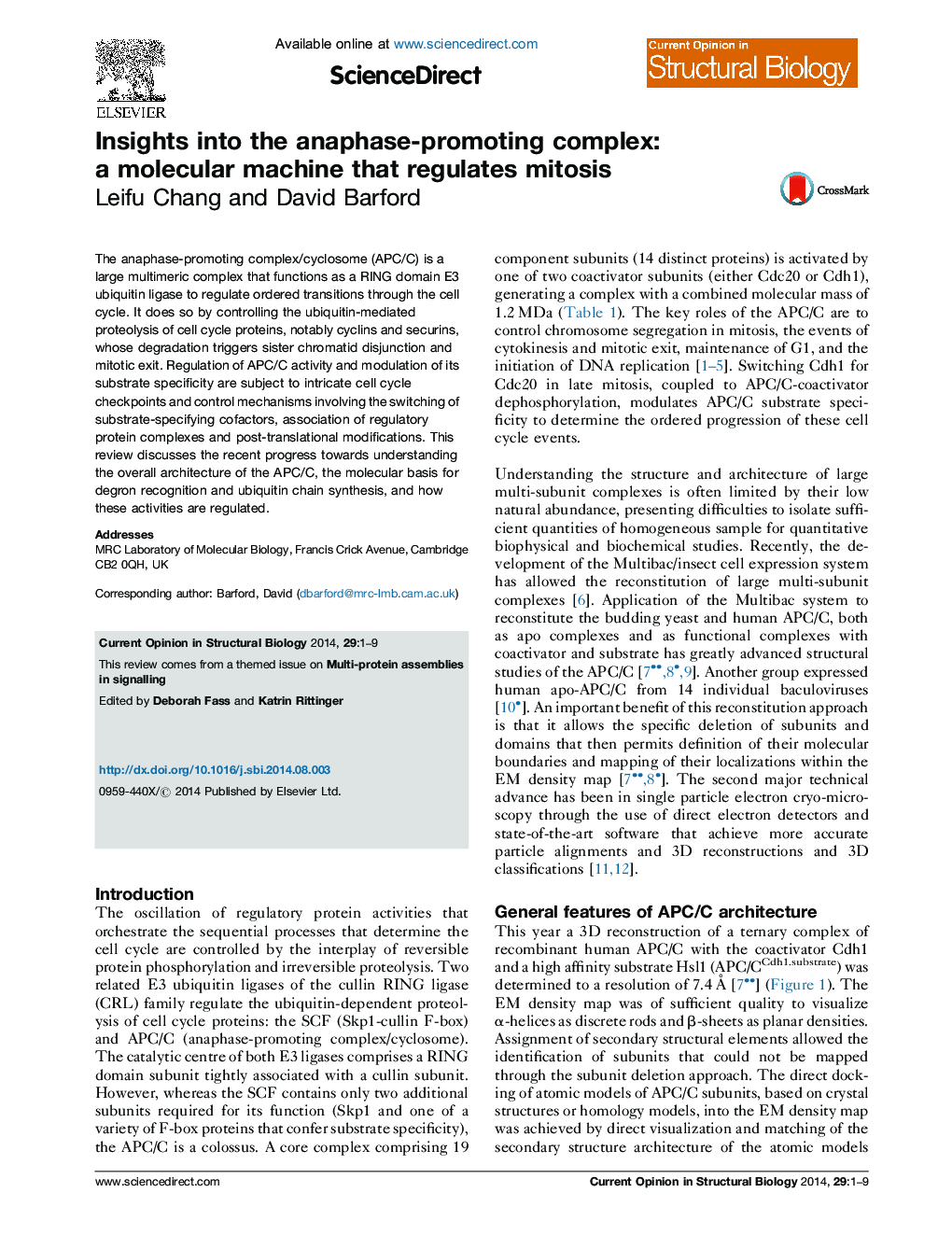| Article ID | Journal | Published Year | Pages | File Type |
|---|---|---|---|---|
| 8320015 | Current Opinion in Structural Biology | 2014 | 9 Pages |
Abstract
The anaphase-promoting complex/cyclosome (APC/C) is a large multimeric complex that functions as a RING domain E3 ubiquitin ligase to regulate ordered transitions through the cell cycle. It does so by controlling the ubiquitin-mediated proteolysis of cell cycle proteins, notably cyclins and securins, whose degradation triggers sister chromatid disjunction and mitotic exit. Regulation of APC/C activity and modulation of its substrate specificity are subject to intricate cell cycle checkpoints and control mechanisms involving the switching of substrate-specifying cofactors, association of regulatory protein complexes and post-translational modifications. This review discusses the recent progress towards understanding the overall architecture of the APC/C, the molecular basis for degron recognition and ubiquitin chain synthesis, and how these activities are regulated.
Related Topics
Life Sciences
Biochemistry, Genetics and Molecular Biology
Biochemistry
Authors
Leifu Chang, David Barford,
